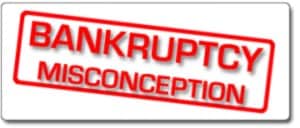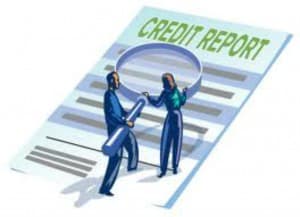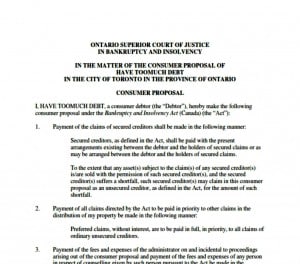 Will the Canadian real estate bubble burst has been the subject of several articles in the newspapers recently quoting Canadian and American economists. So far from what I have read, half of the economists quoted say there is not a Canadian real estate bubble, with statistics to show that there is a healthy real estate market and therefore we will not have a Canadian real estate bubble burst.
Will the Canadian real estate bubble burst has been the subject of several articles in the newspapers recently quoting Canadian and American economists. So far from what I have read, half of the economists quoted say there is not a Canadian real estate bubble, with statistics to show that there is a healthy real estate market and therefore we will not have a Canadian real estate bubble burst.
The other half of the economists, provide statistics to show that there is a Canadian real estate bubble, it has reached the same unsustainable levels as was the case in 2008 in the United States and that there will be a Canadian real estate bubble burst to drag all of us down.
Although my Firm has done many real estate receiverships, the most famous so far being the Court-appointed receivership of the highly publicized The Suites at 1 King West, built by Harry Stinson, my crystal ball is no better than yours. I cannot tell you if:
- a Canadian real estate bubble burst will not happen since we are in a safe real estate market where Canada is attractive to immigrants from around the world looking for a safe haven for their money, and they truly believe Canadian real estate is it; or
- real estate prices are unreasonably high and that there will be a Canadian real estate bubble burst.
As far as the economist’s statistics, which are being used to prove both sides of the argument, all I can do is quote British Prime Minister Benjamin Disraeli when he said there are “Lies, damned lies, and statistics“, to describe the persuasive power of numbers, particularly the use of statistics, to bolster weak arguments.
In our recent blog, FINANCIAL CRISIS IN CANADA: CAN REAL ESTATE PRICES TRIGGER ONE?, we reported that:
- 7.5% of the Canadian workforce is in the construction industry, while 7% of the Canadian economy is based on residential construction – both record highs;
- the Canadian unemployment rate rose from 6.9% to 7.2%;
- the Canadian debt-to-income ratio has soared to a record 164%, above levels experienced in the U.S. before the financial crisis; and
- the Canadian Bankers Association reports that 70% of all household debt in Canada is made up of residential mortgage debt.
But there is one certainty I can tell you about. Even if there is a slowdown in the Canadian real estate industry, and not a Canadian real estate bubble burst, residential construction workers and real estate agents will suffer. A slowdown in residential construction, and less residences being sold, does not bode well for these two groups. So it will be the severity of the slowdown, and the effect on real estate prices, to know whether or not there actually is to be a Canadian real estate bubble burst.
So, what can they do to stop a Canadian real estate bubble burst? The answer is nothing. However, they should always have arranged their affairs so when there is a slowdown, they were always:
- living within their means by spending less than they earn so that they would not have problems living paycheque to paycheque;
- using proper budgeting techniques to make sure they were paying down a portion of their debt with every pay;
- paying themselves first by maintaining a program to make sure that they were putting away a portion of every pay into savings for investment so that they would be able to weather any downward blips in their income;
- making sure their income tax was paid up on time so that they would not have any large amounts outstanding from past years in a time when their incomes were reduced;
- only charging to credit cards what they would be able to pay off in full every month so as not to incur credit card debt with high interest costs; and
- reviewing their credit report to make sure their credit rating was accurate, and if they were experiencing any credit problems availing themselves of a proper credit counselling agency, NOT one of the debt settlement companies.
So as you can see, there is no magic pill that you can take to solve your financial problems if there is a Canadian real estate bubble burst, an illness, an emergency, or when life just throws a curve ball at you. The best time to have guarded against financial challenges, if you truly were worried about a Canadian real estate bubble burst, was before it happened.
If you’re financial well-being, and that of your entire family depends on the value of your real estate always rising, and you will be doomed if there is a Canadian real estate bubble burst, whether you wish to admit it or not, you have serious financial problems. Before disaster strikes as a result of a Canadian real estate bubble burst or otherwise, contact Ira Smith Trustee & Receiver Inc.
We can review your situation with you, in a no charge initial consultation meeting, and provide you with real options. If we meet early enough, we can discuss various bankruptcy alternatives such as credit counselling, debt consolidation or consumer proposals, all in order to avoid personal bankruptcy. We will go over all of your options, and encourage and help you to implement the one that is right for you.
Together we can solve your problems with immediate action and the right plan so that Starting Over, Starting Now will become your reality.
 Bankruptcy FAQ Canada has been compiled from the questions most asked of us by people facing financial challenges.
Bankruptcy FAQ Canada has been compiled from the questions most asked of us by people facing financial challenges.





